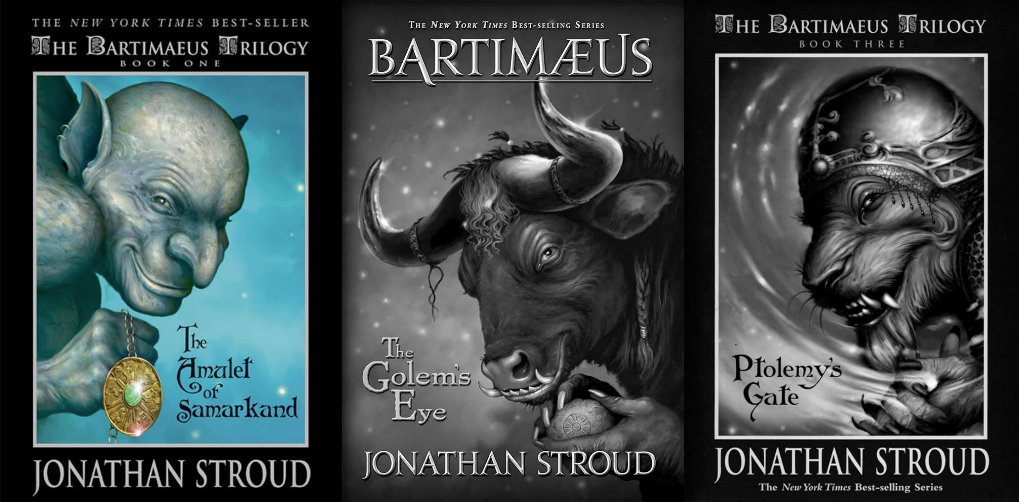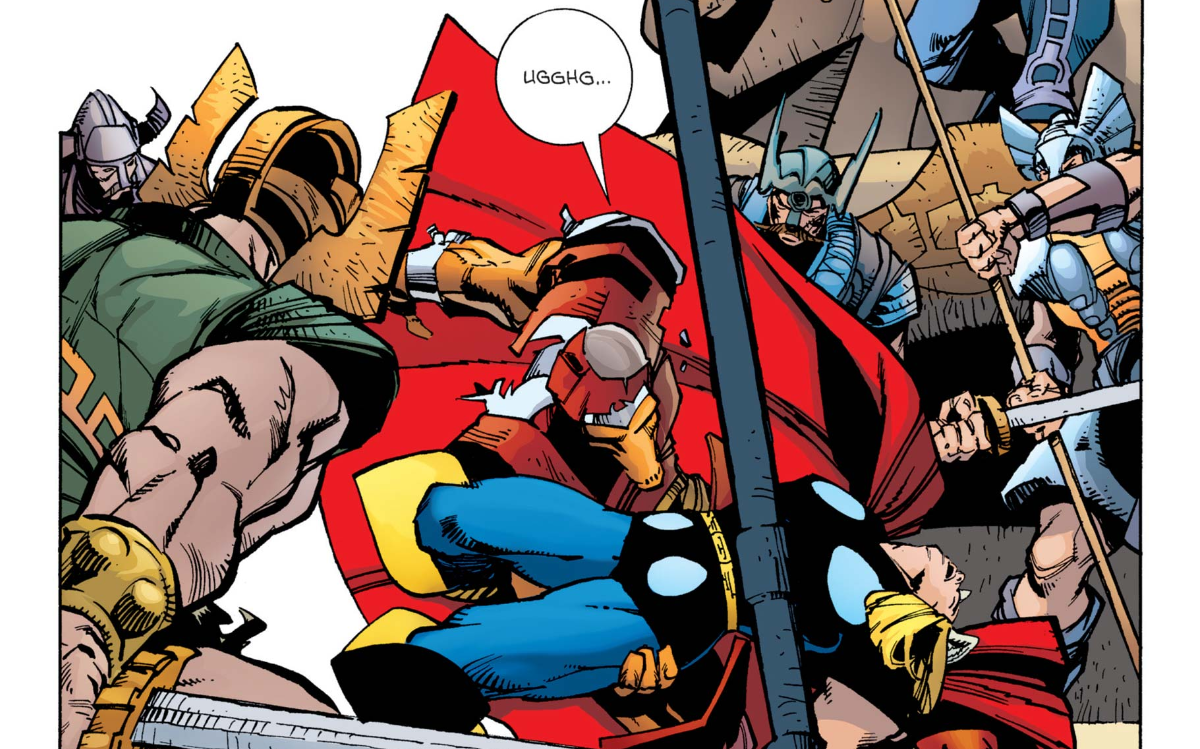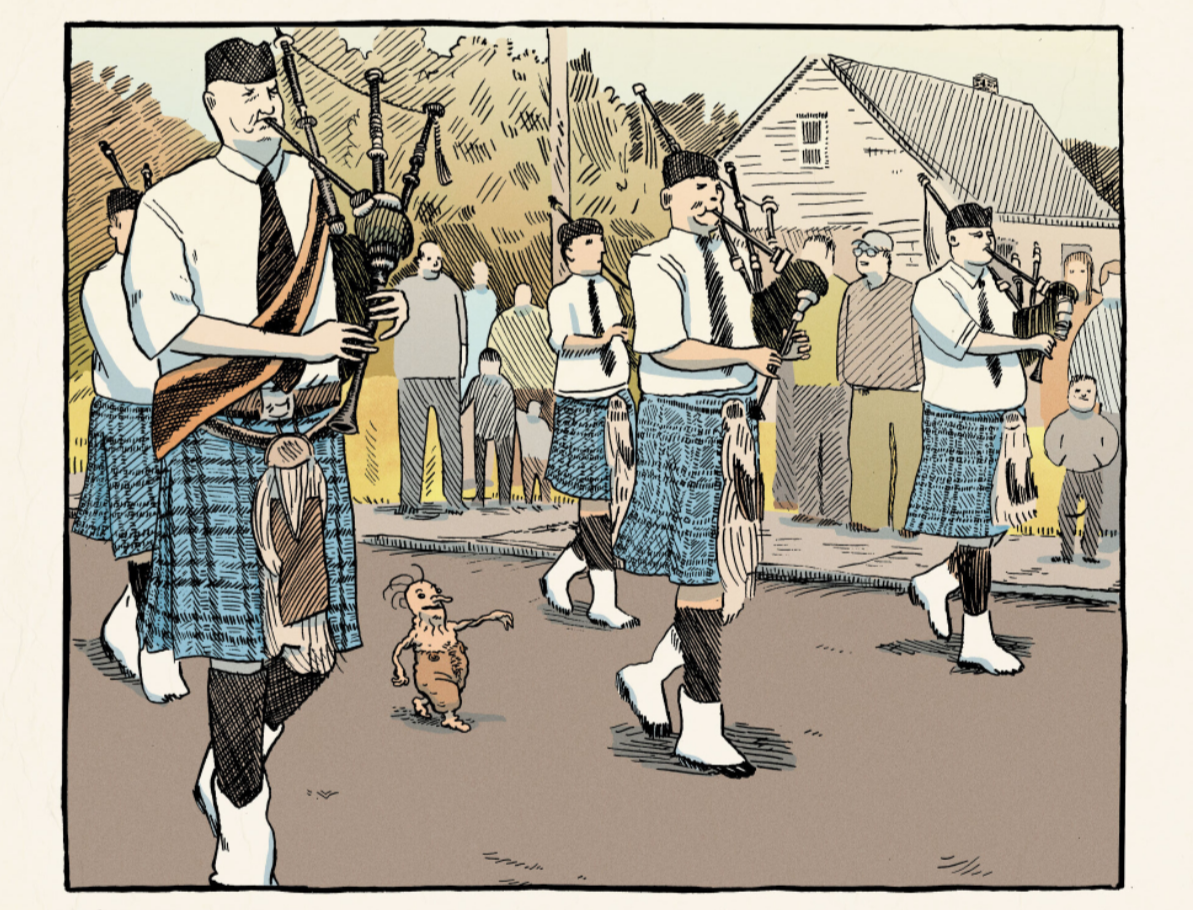Exposing the Empire with YA, The Amulet of Samarkand
YA Revisited

Background
“It’s like Harry Potter, but for boys.” This confusingly misguided comment is one I remember distinctly from the book store employee who was trying to sell my grandmother and me The Amulet of Samarkand. The even more baffling part is that it worked. But to be fair it was 2007 and, as an eight year old boy in the rural American South, I was horrified to learn that I potentially had been reading and enjoying a book series that was for girls.
Having read the entire Bartimaeus series in my youth, I still have no clue what that employee was referring to, unless it was pure author discrimination. However it is very clear that similarities between the series do exist, at least superficially. The Amulet of Samarkand is book one of the Bartimaeus Trilogy (or Sequence if you’re nasty), and centers around a naive, misguided orphan who is introduced to a world of magic and politics in London. The overall setting and description is honestly the extent of the crossover between Bartimaeus and HP, besides some common themes and tropes that are much more attributable to the genre than anything.
The book is certainly an introduction into a new specific world cooked up by author Jonathan Stroud. There is a significant amount of time spent building the logic and lore of this version of reality, though it is admirably obscured within gripping action and drama sequences. The political structure that is explored can seem a bit simplistic when viewed now, but I do distinctly remember being confused and challenged by many aspects as a child. This story unfolds in a way that is not revolutionary, but is potentially subversive for the target audience.
Nathaniel, But Kindly Keep His Name To Yourself
Despite not being the series titular hero, the viewpoint character for The Amulet of Samarkand is the young magician named Nathaniel. An orphan being raised via abuse, while simultaneously being integrated into a lifestyle of power and privilege. He is a tragic mess from the start to the end of this journey.
The world that unfolds for Nathaniel, and the reader, is a society of distinct hierarchies and exploitations of power. In other words it mirrors reality quite sharply. The ruling class is exclusively magicians, who keep their knowledge secret and consolidated. Nathaniel is indoctrinated with the ideas that the British Empire’s magicians are noble heroes, and that they keep peace throughout the world. He is so young and sheltered that his naivety drives a lot of his actions. The other force pushing him is ambition and privilege.
With one hand his adopted parents, particularly his father, is smacking Nathaniel down with physical and verbal abuse. The other hand is feeding stories of glory and spelling out the ways to achieve it. Nathaniel’s growth and liberation is linear and clear from early on, however it becomes marred in the death of his innocence.
The exploits of Nathaniel and his gradual rise in power could be considered the main story, but the more interesting angle is the system that he learns about. As he becomes more adept at wielding his position, the consequences of doing so are revealed.
The magician’s main weapon is the enslavement via magical bonds of djinn, pulled from another realm. Utilizing the inherent power of knowing a djinni’s true name, the magician’s have developed a reliable system to continually wield the magic for themselves. The whole process is very business coded, with the orders and bonds between the two parties basically being magically bound contracts. Unfortunately for Nathaniel, djinn can utilize a magician’s true name to inflict intense pain, if they somehow manage to learn it. This lesson comes to him through a trial by fire, and it is the first domino to fall for the young boy.
It becomes very hard to justify commanding other beings through force, when they suddenly can deliver direct consequences to you. The reality in the novel, and in many cases in the real world, is that the privileged simply cannot comprehend the repercussions of their action, as long as they remain secluded above it.
The instant the tables turn, the crushing weight of empathy and sympathy starts to press on Nathaniel, in a relatable manner. From there he’s presented with the easy option of playing into the system, or the harder one of standing against it. This decision will be continuous, one Nathaniel has to keep making. He does not see the full picture, even at the end of the novel, but the building contrast between Nathaniel’s abilities and his morality is the lynchpin of his character.
Bartimaeus, But Keep His Name To Yourself
The second protagonist, and the guide for both the reader and Nathaniel, is the djinni Bartimaeus. He can only be described as pure wit, using footnotes to give long winded and personal asides, ranging from petty jabs to small history lessons. Bartimaeus keeps up a cold, sarcastic facade, but slowly reveals a much more relatable personality to the reader.
An unaging spirit, who has been around for much of humanity’s history, Bartimaeus is a deep well of experience. From him the reader learns the dynamic between the djinn and the magicians, namely the former being ripped from their homes and forcibly bound to the will of the latter. The many levels of djinn have varying abilities ranging from vaguely useful to horribly destructive. The more powerful the spirit, the more difficult it is for the magician to bind and wield.
Bartimaeus reveals himself to be a mid-level djinni, but continuously builds himself up with stories of his historical exploits. The most important insight he allows is that ancient Egypt was his favorite era, and that he made a magician friend in that time. The boy named Ptolemy becomes a clear indicator that Bartimaeus has a much larger capacity for compassion than he lets on.
In terms of an arc, Bartimaeus doesn’t have too much progression as a character. He is forced into participation in the story, and spends most of the story quipping and darting through action sequences. In between he uses humor to mask the information dumping, as he describes the levels of imps and the specific limitations of certain magicians. Charming and very funny, his chapters are highlights and a breeze to read, if a bit one note.
"And then, as if written by the hand of a bad novelist, an incredible thing happened."
Systems, Sarcasm, and Storytelling
As the first in a series, The Amulet of Samarkand is unabashedly an introduction in many ways. There is a clear sense of trying to describe as much of the political and magical systems as possible, while still delivering an engaging story. The occasional separation of the information dumps into footnotes is interesting since it provides an easy way for readers to simply skip the long winded explanations, but in doing so highlights the stark difference in content. There is certainly a sense that the story wants to be action packed, dramatic, and over the top, but feels obligated to justify each sequence. In the best cases it helps to keep the story fleshed out and immersive, but at worst the distinct sections can feel too dissimilar and actually pull the reader out.
As Nathaniel gains more real world experience, the political landscape of this version of the British Empire is exposed to him. From a younger perspective this can be pretty enlightening, as the fictional empire very much mirrors those that dominate the international landscape of reality. As an older reader though it is decidedly the less interesting out of the two systems that are being presented.
The magic system for the novel is based around different planes of existence and perception. The more powerful a djinni, the more levels they can see and manipulate, with the humans largely staying confined to the first material plane. From the perspectives of the protagonists, the system is fairly intuitive and at least feels like it makes sense even when the exact events are vague or rushed.
Building out the institutional structures takes up a large portion of the reading, but the spaces that are left are crammed with sincere character moments and romping action sequences. There are very few conversations or altercations that do not feel as though they are moving the plot or characters along. The story comes out tight and self contained, while simultaneously poised to be expanded into much more.
Conclusion
There are plenty of novels where the YA label can come across as unnecessary or borderline derisive. Without getting into the merits of those arguments or the classification in general, The Amulet of Samarkand works as a fantastic novel for readers of any age. The light it shines on society in general could be seen as one that has long been illuminated for older readers, who may not feel truly challenged by the story or themes.
For even the most seasoned fantasy veteran though, there is plenty of interesting magic and lore, not to mention jokes, to keep the story compelling. An easy read, with plenty of new ideas and at least one standout protagonist. The novel exceeds expectations but does not necessarily smash them.
Score: 70/100



